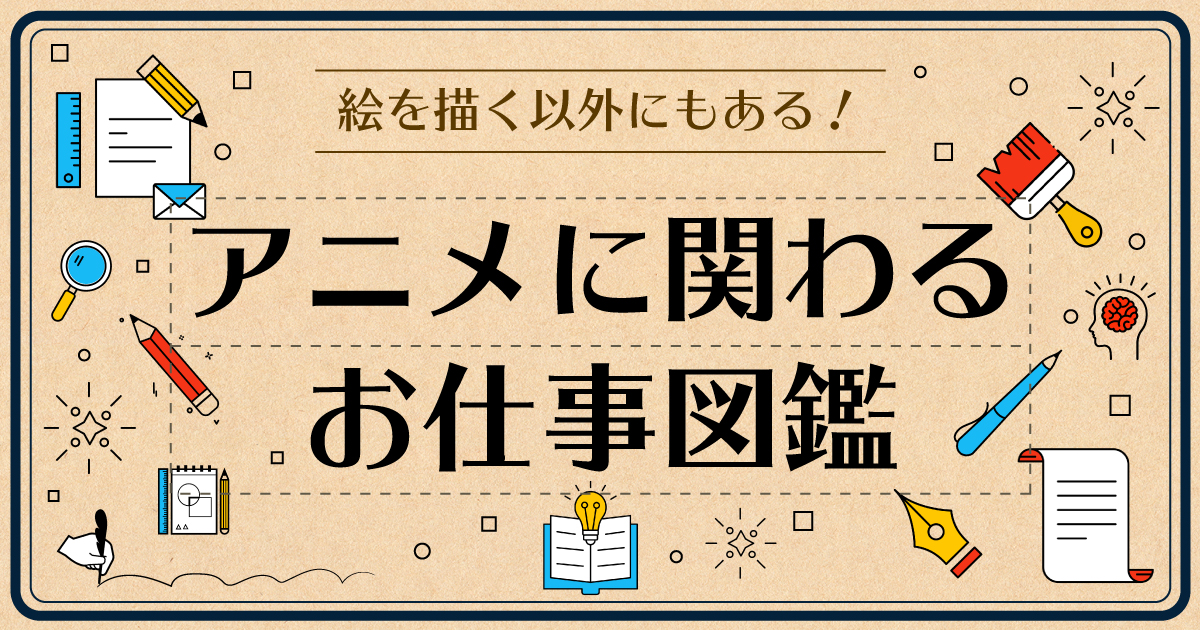クリエイターでなくてもアニメの現場に関われる仕事です/音響制作担当「スタジオマウス」
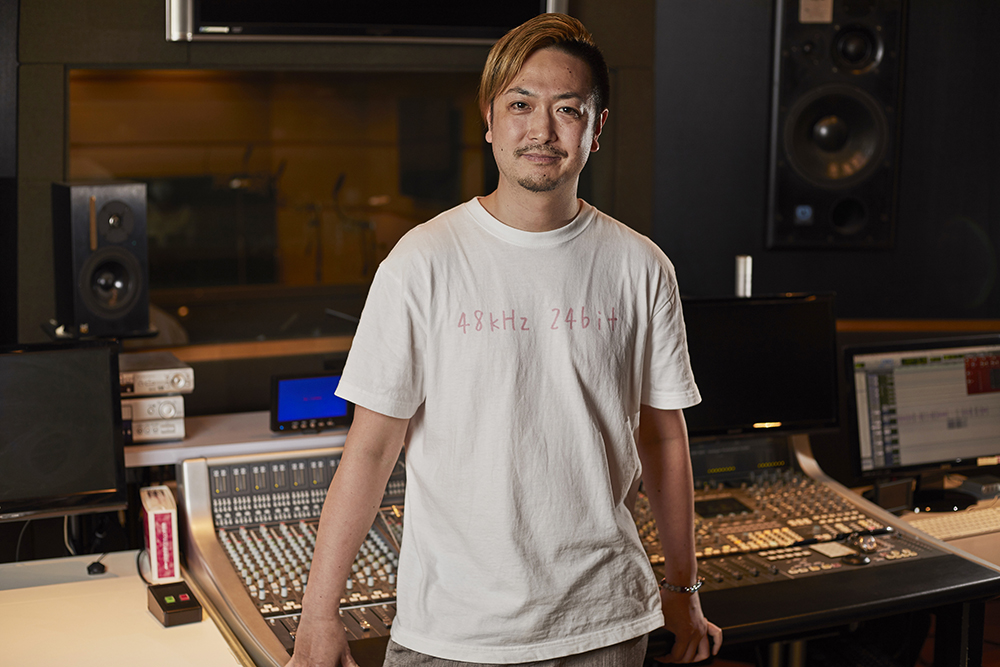
インタビュー/直江あき 撮影/Matias Nakanishi
アニメが大好き! だけど、絵が描けないからアニメの仕事には関われない……と思っている人はいませんか?
実は、アニメ制作以外にもアニメに関わる仕事はたくさんあるんです。この連載ではアニメの仕事に関わる様々な人にインタビューをしていきます。
第3回は、株式会社スタジオマウスで音響制作担当の仕事をしている石黒さんにお話を伺いました!
音響制作担当の主な業務は連絡と調整
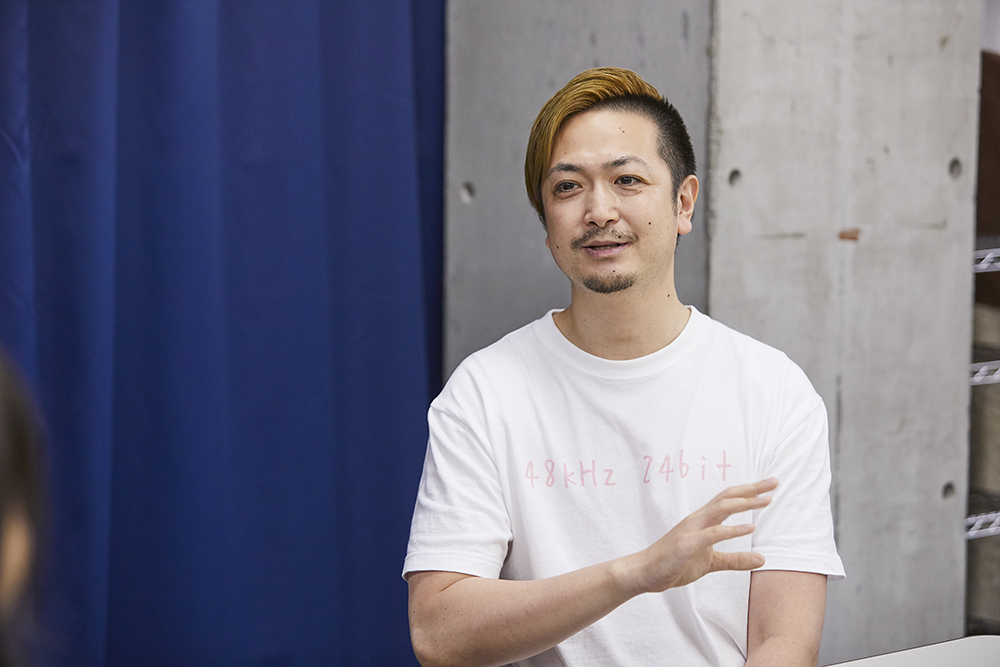
── 音響制作会社の仕事内容を教えてください。
石黒:スタジオマウスは、主にアニメやゲーム作品などの音響制作を行っており、スタジオでの音声収録や音の編集など技術的な部分と、受注から納品までのスケジュールや工程を管理しています。
他社では、海外作品の吹替やTV番組・CMなどのナレーションの収録を行うところもありますね。
── そのなかで「音響制作担当」の石黒さんはどのようなお仕事をされるのですか。
石黒:「音響制作担当」というと、アフレコの演出などをしているイメージがありますが、アフレコで演出をしたり、アニメの各シーンにどの音楽を入れるかを決めたりする作業は「音響監督」の仕事です。また、効果音をつける「音響効果」や、音を録音・調整する「ミキサー」などの技術者がいます。
そのような技術職とは違い、僕は音響制作“担当”です。音響制作担当は、電話やメールといった事務的作業をしています。
── 音を作るわけではないんですね。
アニメ制作会社で業務が似ている担当は「制作進行」とクレジットされるのでわかりやすいですよね。アニメ制作会社の仕事現場を描いたアニメ『SHIROBAKO』の主人公・宮森あおいのポジションです。絵を集めるか音を集めるかの違いなので、制作進行の音響バージョンだと考えればわかりやすいかもしれません。音響の場合、TVアニメの1クール12話などを最後まで1人で担当しています。「音響制作進行」の方がイメージしやすいですよね(笑)。
── 音響制作担当の仕事の流れを教えてください。
石黒:アニメ作品の場合、制作会社から発注が来たら、音響監督を決め、オーディションを手配し、キャスティングを行います。そして、制作陣やキャストのスケジュールに合わせてアフレコの日程を決める。その後、アフレコした音声と効果音、音楽を映像に合わせるダビングという作業に立ち会い、出来上がった音を納品します。
── 声優のオーディションも音響制作担当がやるんですね。
石黒:声優を選ぶというわけではなく、オーディションの段取りを決めています。
メインキャラクターはオーディションを行い、監督や音響監督、プロデューサーなど、みんなで決めることが多いですね。 その他のキャラクターは音響監督や音響制作担当に一任される場合もたくさんあります。ゲストキャラクターなどは、こちらから候補者リストを作って提案するときもありますね。
また、台本を作る作業も行います。アニメ制作会社から絵コンテなどが届いたら、登場キャラクターやセリフ数など内容を確認し、製本会社に台本作成の依頼をする。アフレコやダビングに必要なありとあらゆるものを音響制作担当が準備しています。
細かい仕事は他にもありますが、メインはスケジュールの段取りをすることですね。アフレコをするためには、声優はもちろん、音響監督や監督のスケジュールも調整しなければいけません。
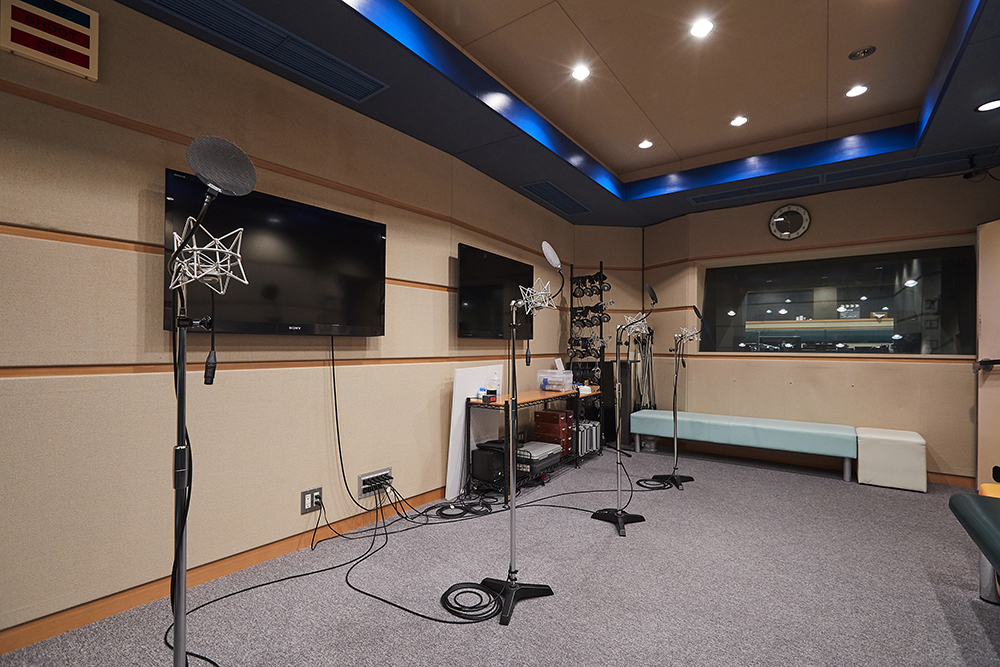
── アフレコには何人くらいの人数が集まるのでしょうか?
石黒:制作陣やキャストと合わせると、20人前後が平均で、多いときには40人くらいになります。その人数を同時にスタジオに呼ぶためにスケジュールを調整することが、僕たち音響制作担当の仕事ですね。
── 必要な人数が集まらないときはありますか?
── 声優さんって、1年先までスケジュールが埋まっていますよね。
石黒:2年先まで予定が入っている方も多いですね。 そこを調整しながらスケジュールを組んでいきます。2年先まで綺麗にスケジュールを組んだ仕事が予定通りにいく場合もありますが、なかなか思い描いていた通りにならないことの方が多いです。スケジュールの組み直しは日常茶飯事ですね。
── どうしても都合がつかなかった場合はどうするんですか?
石黒:なんとか工夫します。たとえば、20人集めたかったけれど15人しか集まらないときは、15人でやりますね。残りの5人は、時間帯や日にちをずらして解決します。
特に今はコロナの影響があるので、極力人数を減らしてアフレコを行うといったイレギュラーな状況が続いています。これまでは長時間、大人数でやっていたものを、細かく分けて交代で録音している状態です。一度に集める人数は減りましたが、スケジュール管理が細かくなったぶん、 今の方が大変ですね。
たとえ不測の事態があっても、クリエイターたちができるだけ100%に近いコンディションで仕事ができるように環境を整えることが僕たちの仕事です。
クリエイティブではないけどアニメに関われる
── 音響制作担当の仕事の良いところを教えてください。
石黒:1つのタイトルだけでなく、複数の現場を担当することができるのが魅力です。
アニメ制作会社だと、1つのアニメを作るのに2年以上かけます。一方、音響会社が1つの作品に関わるのは半年、長くても1年くらいなので、そのぶんたくさんの作品に携わることができます。
アフレコの現場を同時期に3〜4本進行させることもあるので、メーカーやプロデューサー、アニメ制作会社など、多数の方々と接することができます。アニメやゲームが大好きな人にはすごく良い環境だと思います。
── いろんな人に会えるのが楽しいんですね。
石黒:僕は「クレジットオタク」で、アニメ作品のクレジットを見るのも好きなんです。なので、「あの監督に会える!」とか「あのプロデューサーだ!」とか、ファン目線でうれしくなることも多いです。
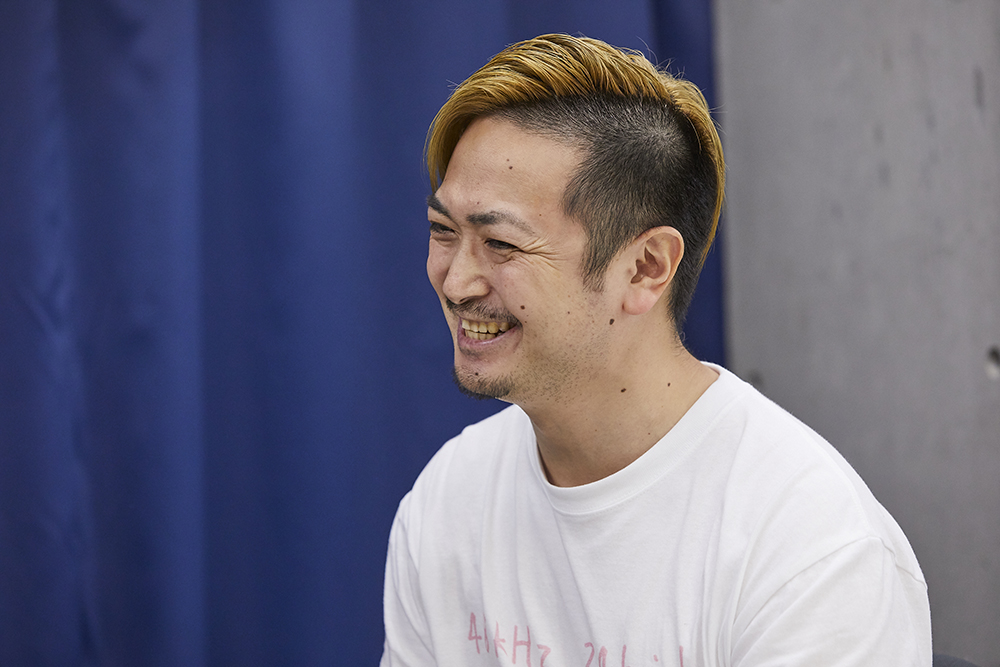
── どうしてアニメを趣味ではなく仕事にしようと思ったんですか?
石黒:好きなものにずっと触れていたいタイプなんだと思います。
僕にできることがあればやりたいという気持ちが大きかった。音響制作担当は裏方だけど、誰かがやる必要がある仕事で、アニメやゲーム制作になくてはならない存在です。
音響制作担当は“穴場”な仕事
── この仕事につくまでの経緯を教えてください。
入社して最初の仕事は、『18if』(エイティーン・イフ)という、2017年にGONZO(ゴンゾ)さんが制作したアニメシリーズでした。それと同時に、『Fate/stay night [Heaven's Feel]』(フェイト・ステイナイト・ヘブンズフィール)も手伝わさせてもらいました。入ってすぐに自分の好きな作品を担当できて、すごくうれしかったのを覚えています。それからずっとufotableさんの担当をさせていただいています。
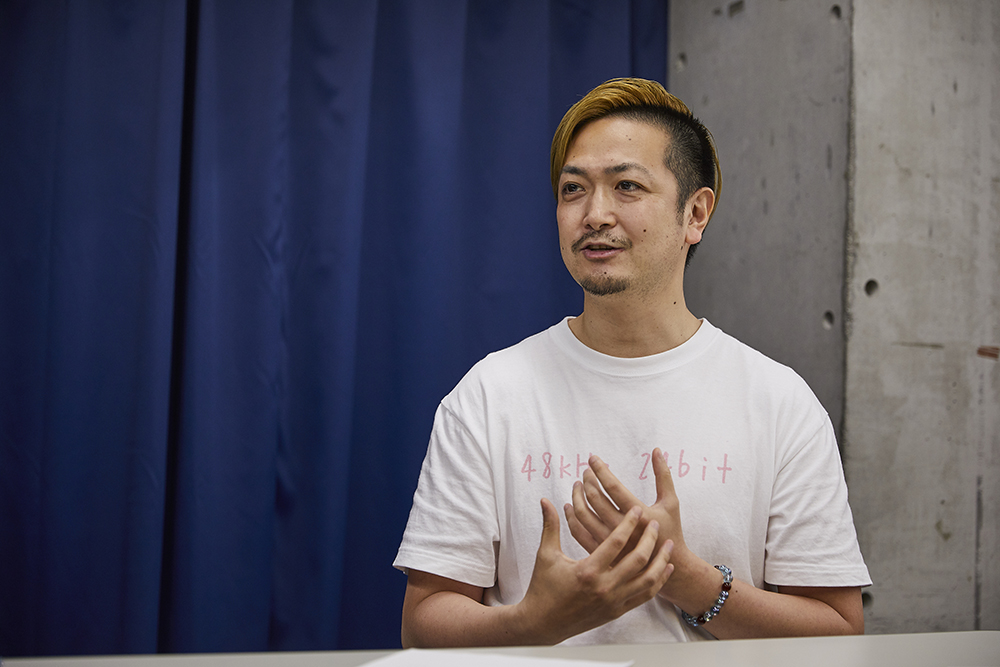
── まったくの未経験で入ったんですね。
石黒:そうですね。音響制作担当担当は、クリエイターじゃなくてもアニメの現場に関わることができる穴場な職業です。しかも、専門学校などを出て特殊な技術を身につけなくてはいけないわけでもなく、学歴も関係ありません。挑もうと思ったら、誰でも挑める職種です。
── どのような業種にキャリアチェンジする人が多いのでしょうか。
僕は35歳のときにこの業界に転職しましたが、20代から音響制作の仕事をやれば若いうちに音響監督になれる可能性もあるので、アニメやゲーム作りの現場に深く関わりたい人は音響監督を目指すのもいいかもしれません。といっても、この仕事は他の仕事を経験してからでもできるので、社会人経験を積んでから転職してもかまわないと思います。
── スタジオマウスさんは求人はしていますか?
日中はアフレコかダビング
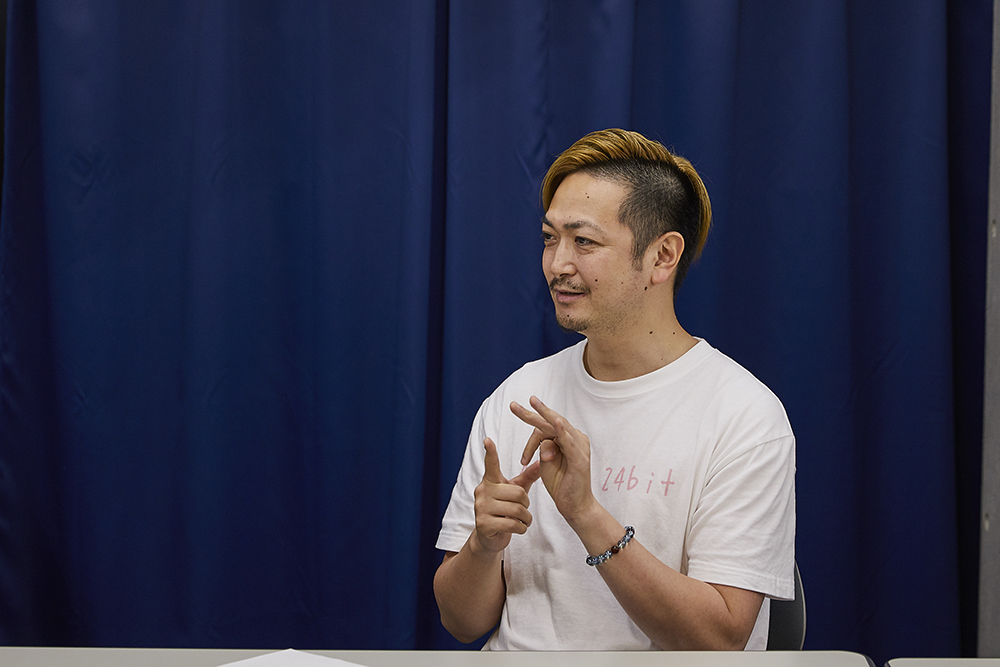
── 1日のタイムテーブルを教えてください。
石黒:基本的には朝10時頃に出社して、夜は19時から21時くらいには退社します。現場によっては昼過ぎから終電までということもあります。仕事は忙しいですが、アフレコは夜中にはやっていませんし、徹夜はありません。準備などで終電を逃すことはありますが……。
出社後、まずはメールチェックなどのデスクワークを行い、後はアフレコかダビングのどちらかを行っています。弊社もスタジオは持っていますが、同じ日に録音する作品が多く、足りなくなる場合があるので、他のスタジオを借りることもあります。
── アフレコ中は何をやっているんですか?
石黒:アフレコ中はロビーで待機し、進行管理をすることが多いですね。たとえば、10時からの人と13時からの人を入れ替えたり、次の現場がある人には時間が来たら声をかけてスタジオから出したりしています。アフレコ中は待機して進行を見つつ、ノートパソコンで仕事をしている感じですね。昼食を用意するという重要なミッションもあります(笑)。
── 打ち合わせで外出することはありますか?
音響制作の必需品って?
── 音響制作担当の必須の持ち物などはありますか?
石黒:必需品は、ノートパソコンと外付けのハードディスク、USBメモリぐらいですね。この3点はいつも持ち歩いてます。
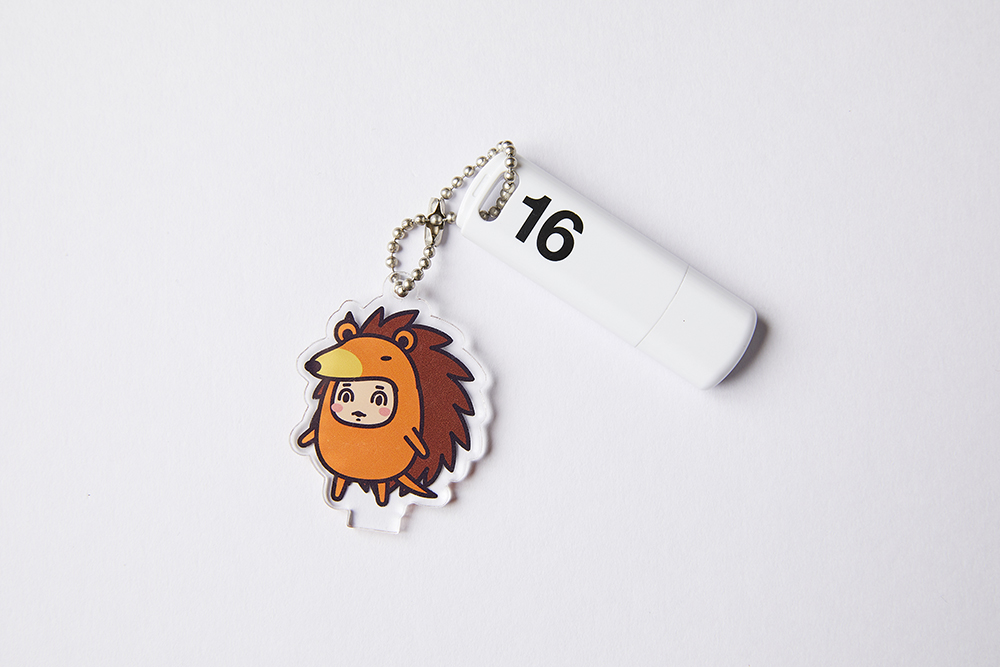
石黒:ノートパソコンに貼ってあるテープやUSBメモリについているキーホルダーは、うちのオリジナルグッズです。
スタジオマウスはマウスプロモーションという声優事務所から分離独立した会社で、共同でマウスオリジナル商品を制作しています。オリジナルのドラマCDなども制作・販売しているんですよ。
「マウスシアター」というドラマCDのシリーズは、オリジナルドラマだけではなく、キャラソンではない声優本人が歌う曲も入っていて、珍しいですね。会社のすぐ近くでマウスショップも運営しているので、ぜひ遊びにきてください。
── 石黒さんは今どのような作品に関わっていますか?
石黒:今年6月に放送が終わった『かくしごと』を担当していました。7月から放送開始の、『Lapis Re:LiGHTs』(ラピスリライツ)というアニメでも音響制作を担当させてもらっています。 魔法を使えるアイドルの女の子がたくさん出てくる青春アニメです。
劇場版『Fate/stay night [Heaven’s Feel]』の第3章も8月15日公開です。5.1ch サウンドを体験しに、ぜひ大きな劇場へ観に行っていただきたいですね。僕はアフレコ現場で感動のあまり泣いてしまいました。すみません、ファン目線で(笑)。
今は『劇場版「鬼滅の刃」無限列車編』、TVアニメ『天地創造デザイン部』などを制作中。他にも公開前のアニメやゲームなどを同時進行中です。
アニメのエンディングなどで「音響制作担当」とクレジットされているのを見てくれたらうれしいです。きっと、誰かががんばっています!

